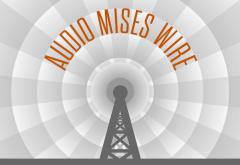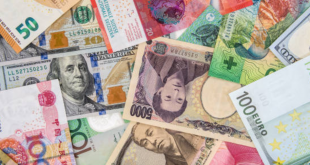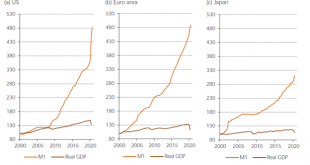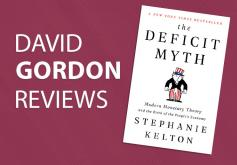The Fed plans to keep interest rates near zero, while monetizing debt, financing zombie companies, and pouring new dollars into the market. But that may not be enough. This Audio Mises Wire is generously sponsored by Christopher Condon. Narrated by Michael Stack. Original Article: “The Fed Is Planning Another Ultralong Period of Ultralow Rates“. You Might Also Like Walter Berns and the Cult of “Patriotic”...
Read More »The Saving Problem in America: Alternatives and Reforms
Savings are the foundation for a productive and advanced economy. Unfortunately, governments insist on policies that make it harder for ordinary people to save. This Audio Mises Wire is generously sponsored by Christopher Condon. Narrated by Millian Quinteros. Original Article: “The Saving Problem in America: Alternatives and Reforms“. You Might Also Like What Germany Must Do for a Speedy Recovery On June...
Read More »Turning to Keynes in this Crisis Will Only Make Things Worse
In the New York Times on September 8, 2020, Paul Krugman wrote that The CARES Act, enacted in March, gave the unemployed an extra $600 a week in benefits. This supplement played a crucial role in limiting extreme hardship; poverty may even have gone down. For Krugman and many economic commentators, it is the duty of the government to support the economy whenever it falls into an economic slump. Following in the footsteps of John Maynard Keynes, most economists hold...
Read More »What the Trade Balance Means for a Currency’s Purchasing Power
In July this year the US trade balance stood at a deficit of $63.6 billion against a deficit of $51 billion in July last year. Some commentators regard a widening in the trade deficit as an ominous sign for the exchange rate of the US dollar against major currencies in the times ahead. For most economic commentators a key factor in determining the currency rate of exchange is the trade account balance. In this way of thinking, a trade deficit weakens the price of the...
Read More »Inflation as a Tool of the Radical Left
“Lenin is said to have declared that the best way to destroy the Capitalist System was to debauch its currency….Lenin was certainly right. There is no subtler, no surer way of overturning the existing basis of society than to debauch the currency. The process engages all the hidden forces of economic law on the side of destruction, and does it in a manner which not one man in a million is able to diagnose.”1 Keynes does not provide a concrete source backing his words...
Read More »Monetary Policy Flapping in the Wind
Stephanie Kelton’s new book has attracted much attention, and Bob Murphy and Jeff Deist have already reviewed it, with devastating results. Why another review? The policies proposed in the book are so pernicious that further exposure of what she has in store for us is needed, and I have some new points to offer for your consideration. Besides, there are few things I enjoy more than writing a critical review. Kelton, who teaches economics at Stony Brook University,...
Read More »Federal Judge: Pennsylvania’s Stay-at-Home Order Is an Assault on Human Rights
A federal judge on Monday ruled that Pennsylvania governor Tom Wolf’s covid-19 stay-at-home orders and forced business closures were unconstitutional. US district judge William Stickman IV of the US District Court for the Western District of Pennsylvania ruled that Wolf’s orders violated the Constitution in three ways. They violated the First Amendment right to freedom of assembly, and they violated both the due process and equal protections clauses of the...
Read More »Clay Miller: An Entrepreneurial Journey to New Lands, New Organizational Designs, and New Value
Key Takeaways The entrepreneurial instinct can be sparked in K-12 and around the family dinner table. An entrepreneurial culture is highly beneficial to society at the global, national, and local levels. We should examine how well we nurture the entrepreneurial instinct in K-12 schooling and in the discussions we have with our kids at home. Clay Miller got a Commodore 64 (you can look it up!) when he was 11 years old, and his interest in computing, software and...
Read More »The Saving Problem in America: Alternatives and Reforms
Since before covid-19 and the lockdown, I have written articles that touch on the purpose and importance of personal savings, and more importantly, why the lack of personal savings was going to make an economic crisis in the year 2020 potentially tragic for most Americans. As a result, I have been interviewed a couple of times specifically on the topic of personal savings. These interactions have indicated to me that people do not understand the importance of savings...
Read More »The Evidence Keeps Piling up: Lockdowns Don’t Work
Extraordinary measures require extraordinary evidence. Have the advocates for lockdowns made their case? The data suggests they have not. This Audio Mises Wire is generously sponsored by Christopher Condon. Narrated by Michael Stack. Original Article: “The Evidence Keeps Piling up: Lockdowns Don’t Work“. You Might Also Like The Disastrous Legacy of Woodrow Wilson [unable to retrieve full-text...
Read More » Swiss Economicblogs.org
Swiss Economicblogs.org








